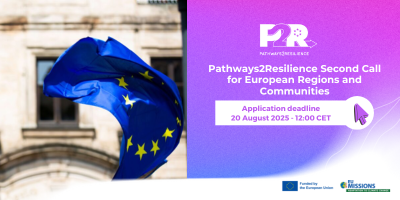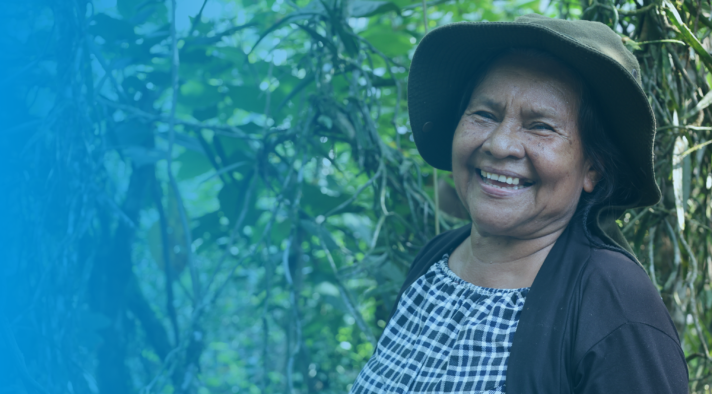As part of the Regions4 interviews series, we talk to Mr. Eduardo Trani, Sub-Secretary of the Environment, Government of São Paulo, about his region’s actions to achieve the Sustainable Development Goals until 2030
Regions4: Working on innovative solutions to today’s interconnected global emergencies is what is setting regional governments apart to make a difference. How is your region working to achieve the 2030 Agenda and the Sustainable Development Goals (SDGs)?
Since 2016, the Government of Sao Paulo State has been working towards the institutionalization of the 2030 Agenda and the United Nations (UN) Global Goals – the SDGs. Thus, in 2019, the Governor created, by Decree, a Commission on the theme, which was composed of all 24 State Secretariats and about 26 institutions linked to the state. The first major challenge we faced was precisely to get the internal engagement around a new, complex but yet of common interest endeavor, such as the 2030 Agenda.
The Commission was structured in 5 Thematic Chambers, using the United Nations’s “5Ps” methodology: People, Planet, Prosperity, Peace, and Partnerships. Throughout 2019 and 2020, we have worked to identify the government’s Priority Programs and Goals associated with the UN Global Goals, through a specific work methodology created for this purpose.
Accordingly, and in line with the United Nations “Decade of Action”(2020 to 2030), we have organized the results of our Second SDGs Monitoring Report (II Local Review Report) with the objective of reporting on the public policies and Sao Paulo Sate’s governmental programs in accordance with the 2030 Agenda.
The Thematic Chambers elected 25 Priority Goals as the focus of governmental action and listed 94 governmental programs which indirectly contributed to the other goals of the 2030 Agenda.

This initiative proved that the SDGs are integrated and that action in one area affects outcomes in other areas, therefore, development must balance social, economic and environmental sustainability.Eduardo Trani, Sub-Secretary of the Environment of São Paulo State
Regions4: The latest global summits have shown that climate action must have as its central axis the protection of biodiversity and natural resources. In this sense, from your region’s experience, how can we have a greater integrated action on biodiversity?
Sao Paulo State is committed to working together with both the Rio Conventions, CBD, and UNFCCC, for decades.
Every working group has links integrating both global agendas: biodiversity and climate change.
Some actions have direct and clear connections, for example, ecosystem restoration, green economy, adaptation for climate change, nature-based solutions, protected areas, and coastal & ocean issues.
Other approaches must be deeply studied and planned to reinforce these links between agendas, as cities and incentives.
For Sao Paulo State, both agendas (Climate and Biodiversity) are the main drivers of public policies.
But if you consider just one agenda as the main gate to develop policies, you shall develop the links with the other agenda further.
For instance, when we consider the climate change agenda as context, biodiversity plays an important role to qualify solutions for adaptation.
We can illustrate this answer with some examples.
Considering the climate change agenda, we are developing the PAC 2050 – the Sao Paulo State Climate Action Plan. Undertaken using participatory approaches and tools, we link different programs and projects, from both climate and biological diversity.
At the same time, we run a complex State Protected Area System. In Brazil, the subnational system has a greater number of protected areas. Sao Paulo State has around 20% of its territory protected, which means more than 4.5 million hectares covering more than 50% of the state territorial sea and managed by more than 2,000 counselors.
Harmonized with the entire Sao Paulo State territory, almost 25 million hectares, through the Ecological and Economic Zoning (ZEE), a participatory tool is already working in which climate change is one of the main drivers.
Considering that the UN Decade on Ecosystem Restoration, the CBD Global Biodiversity Framework, and initiatives such as the 30×30 already link both agendas – UNFCCC and CBD, Sao Paulo State launched a huge program to restore 1,5 million hectares.Eduardo Trani, Sub-Secretary of the Environment of São Pauo State
Almost half of this amount, 800,000 hectares, will be supported by innovative tools in partnership with the public and private sectors. For instance, the tax environmental incentives for the 645 municipalities which attend the state requirements, within a program called “ICMS Ambiental”, as well as the payment for ecosystem services oriented for rural producers – reaching values close to US$ 1 billion for the next ten years.
Under the umbrella of the WBio Process, launched during the event WBio2022 in Sao Paulo on June 2022, in partnership with Regions4 and ICLEI, the green economy is another example of linking both agendas. The working group on Bioeconomy and Green & Blue Economy – coordinated by Sao Paulo State, the Community of Madrid, the Secretariat of the CBD, and several other partners, is an important tool to exchange good practices, share experiences and promote good examples around the globe, supporting the implementation of the CBD and the UNFCCC.
Regions4: What are your expectations as a member of Regions4 and how do you see the role of international networks in achieving greater global advocacy for sustainable development?
We are facing hard times. The Covid-19 pandemic, the Ukraine crisis, and other challenges demand a global response that takes into consideration sustainable development.
As the geopolitical order is being rediscussed, there is an opportunity to advance the advocacy work of non-parties actors, such as local and subnational governments.Eduardo Trani, Sub-Secretary of the Environment of São Pauo State
Thus, the role of networks like Regions4 is receiving greater importance, especially tools like the R4BLP and RegionsWithNature. This is why Sao Paulo State is committed to the WBio Process, also to the Secretariat of the CBD and Regions4 – to support the existing partners and to develop new solutions – linking concrete outcomes to the advocacy efforts.
Sao Paulo State believes that the subnational governments should lead by example by building a strong advocacy system as well as developing a platform to raise funds and resources to advance projects on the ground.
As we are living the UN Decade of Action, every action counts.
Join our Community of Practice!
As Organizing Partner of the Local Authorities Major Group (LAMG) and member of the Global Taskforce of Local and Regional Governments, Regions4 represents the voice of subnational governments in the global sustainable development fora, especially in the annual reviews of the 2030 Agenda at the United Nations High-level Political Forum (HLPF).
The Community of Practice is a Regions4 collective and participatory project to support SDGs localization in subnational governments. Based on peer review, it acts as a platform for the region-to-region exchange of experiences, mutual support, capacity building, and alignment of statements both at technical and political levels.
It aims to accelerate the implementation of the 2030 Agenda and strengthen territorial approaches, scaling-up regional pathways from isolated good practices to collective modalities of implementation, ultimately influencing more ambitious results in the national and international frameworks.
Contact us to join our Community of Practice: Mrs. Analice Martinsson at amartinsson@regions4.org



